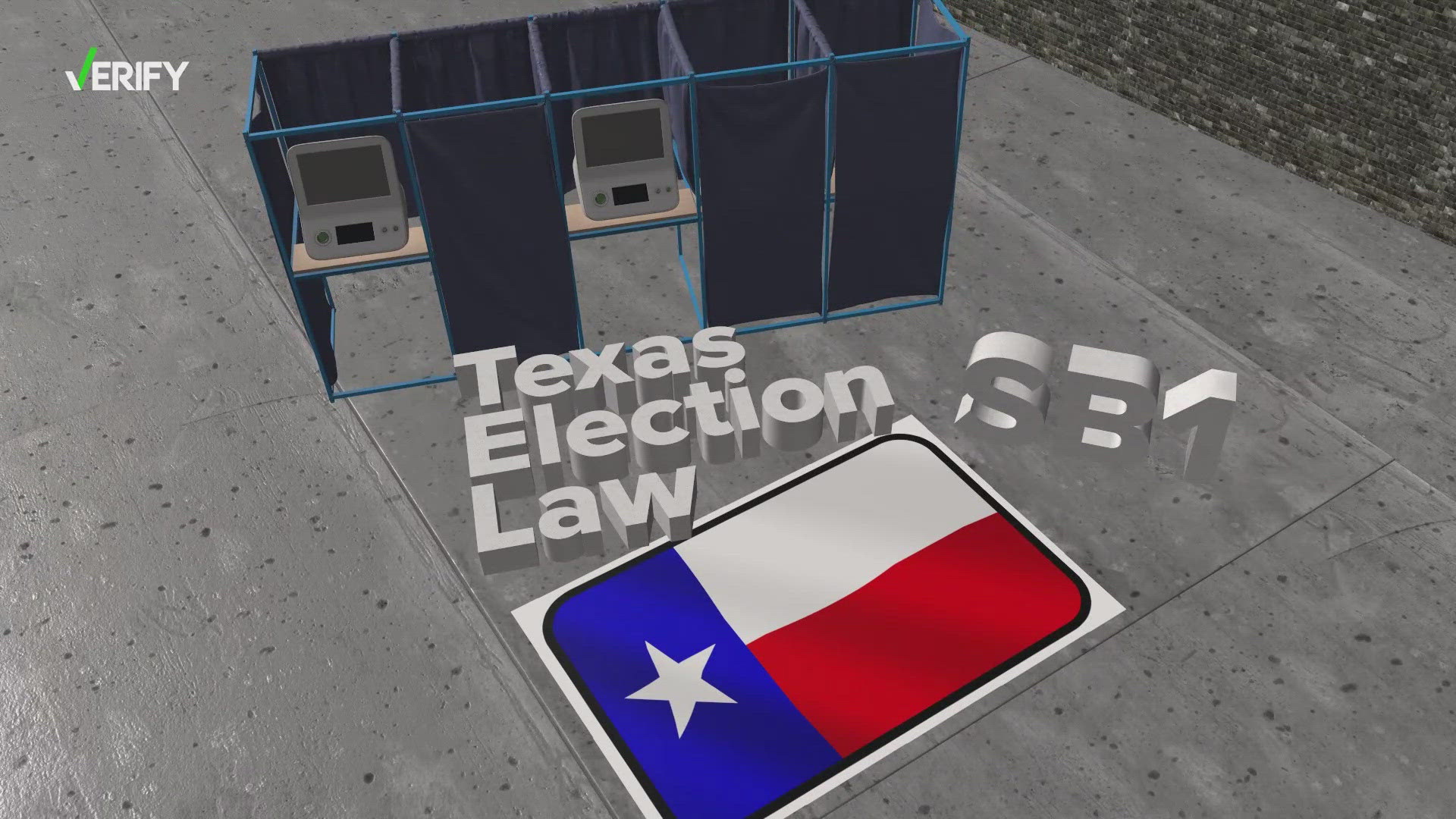HOUSTON — Before Texas passed the 2021 election reform law, known as SB 1, Texas did not have the same method of catching if a noncitizen were registering to vote.
SB 1 established a system for the Texas Secretary of State's Office to verify the accuracy of a person's citizenship status with records from the Texas Department of Public Safety.
On Aug. 26, 2024, Governor Greg Abbott announced over 1 million ineligible voters were removed from the voter rolls in Texas since SB 1 went into effect. Most of the voters removed from the rolls were people who were deceased or voters on the suspense list. According to the Texas Governor's Office, the two categories that had the least amount of voters that were removed from the voter rolls were people who have felony convictions and "potential noncitizens."
According to federal law, noncitizens are not allowed to vote in federal elections, Texas' SB 1 law also ensures that ineligible voters casting a ballot face the possibility of jail time if caught.
THE QUESTION
In Texas, is it legal for noncitizens to register to vote?
THE SOURCES
Texas Election Integrity Protection Act of 2021
Texas Attorney General's Office
Brennan Center for Justice
Texas Secretary of State's Office
THE ANSWER
No, it is illegal for noncitizens to register to vote in Texas, and it does carry the possibility of prosecution.
WHAT WE FOUND
"Incidents of noncitizens registering is vanishingly rare in large part because people are not willing to swear under penalty of perjury that they are a citizen of the United States, the consequences of doing so are extremely dire," said the Director of Voting Rights at the Brennan Center for Justice, Sean Morales-Doyle.
In Texas, voters must attest to their citizenship status when registering to vote. On the Texas voter registration application. the first question that appears on the form is "Are you a United States citizen?" Failure to accurately answer this question can carry the possibility of prosecution. If a noncitizen is convicted of a crime, they could face deportation.
Sean Morales-Doyle is a part of the lawsuit challenging changes to Texas SB 1 law, he also authored an article about the lack of widespread incidents where noncitizens voted in elections.
"The Brennan Center a few years ago, we surveyed election officials, to ask them how frequently they were finding suspected cases of noncitizen voting and even just cases where there was a suspicion, not proven, that someone that might have been a noncitizen voting in elections and that was referred for further investigation, was less than 0.0001% of all ballots cast in the elections, that were covered by this survey," said Morales-Doyle.
When speaking to the KHOU 11 Verify Tea, Morales-Doyle said there have been a few instances where noncitizens have made mistakes whether by not understanding what their immigration status is or being misled by a government official into thinking their current immigration status makes them eligible to vote.
"I think, people who have sort of stake their political careers on trying to prove that there is a problem with voter fraud are sometimes giving us the best proofs that this is an incredibly rare phenomenon, and very little of this ever goes on," Morales-Doyle said.
To register to vote in Texas, you must:
- Be a U.S. Citizen
- A resident of the county you are submitting your application for
- You are at least 17 years and 10 months old on the date your voter registration application is submitted, and you are 18 years of age on Election Day.
- Not convicted of a felony (you may be eligible to vote if you have completed your sentence, probation, and parole)
- Have not been declared by a court exercising probate jurisdiction to be either totally mentally incapacitated or partially mentally incapacitated without the right to vote.
Texas does not have a system for first-time voters to register online, but registered voters can update their information and check their status here.

